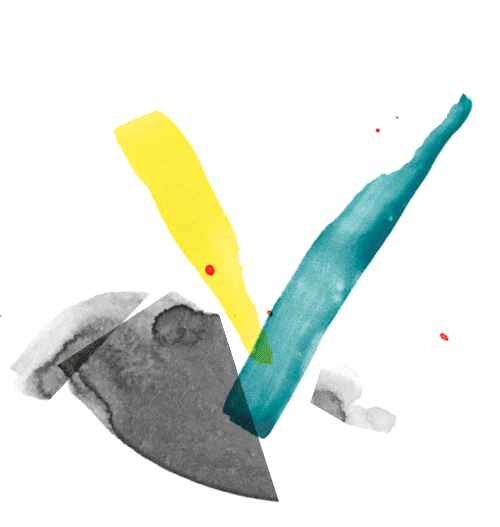

Sign up for our newsletters. You can change the settings or unsubscribe at any time.
Thank you for your subscription. We have sent you an e-mail with a confirmation link.


exp. 1
exp. 2
exp. 3

In 1956, the New Look, a summer outfit designed for the “new man” of the Tropics, was launched on Flávio de Carvalho’s non-conforming body. This contemporary dress code was informed by the artist’s extensive research into the dress cultures of diverse periods and geographies. The architect took to the streets in a prêt-à-porter protest against the inadequacy of European dress for inhabitants of tropical cities. This strolling manifesto contested the narrow constraints embedded in Christian notions of religion, family, and private property. In this one-person fashion promenade, the city not only became a public stage but was used to demonstrate how cities are made of moving bodies. The New Look makes a fundamental link between the garments we wear and how our bodies inhabit and transform the world.
IV: How Fear Can Dismantle a Body. Vis-a-Vis with ...
María Berríos, Lisette Lagnado
Conversation
II: La Solidaridad va Más Allá de un Concepto. ...
Lisette Lagnado, Agustín Pérez Rubio
Conversation
El primer nueva corónica y buen gobierno
Felipe Guamán Poma de Ayala
Chronicle
Fragments of the Artist’s Diary, Berlin 11.2019–1.2020
Virginia de Medeiros
Diary
Teatro da Vertigem
Monograph
Touching Feeling. Affect, Pedagogy, Performativity
Eve Kosofsky Sedgwick
Monograph
Glossary of Common Knowledge
L’Internationale Online
Glossary
A Moment of True Decolonization / Episode #6: Sinthujan ...
The Funambulist / Sinthujan Varatharajah
Podcast
Queer Ancient Ways: A Decolonial Exploration
Zairong Xiang
Monograph
Grupo Experimental de Cine en acción
Gabriel Peluffo
Drawing
Fragments of the Artist’s Diary, Berlin 11.2019–1.2020
Virginia de Medeiros
Diary
A Moment of True Decolonization / Episode #6: Sinthujan Varatharajah. Constructing the Tamil Eelam State
The Funambulist / Sinthujan Varatharajah
Podcast
COVID-19 VIDEOS
Carlos Motta
Video
New Look
Flávio de Carvalho
Performance
II: La Solidaridad va Más Allá de un Concepto. Entre las Curadoras de la XI Berlin Biennale
Lisette Lagnado, Agustín Pérez Rubio
Conversation
By using this website you agree to the use of cookies in accordance with our data privacy policy.

In 1956, the New Look, a summer outfit designed for the “new man” of the Tropics, was launched on Flávio de Carvalho’s non-conforming body. This contemporary dress code was informed by the artist’s extensive research into the dress cultures of diverse periods and geographies. The architect took to the streets in a prêt-à-porter protest against the inadequacy of European dress for inhabitants of tropical cities. This strolling manifesto contested the narrow constraints embedded in Christian notions of religion, family, and private property. In this one-person fashion promenade, the city not only became a public stage but was used to demonstrate how cities are made of moving bodies. The New Look makes a fundamental link between the garments we wear and how our bodies inhabit and transform the world.
El primer nueva corónica y buen gobierno
Felipe Guamán Poma de Ayala
Chronicle
Maternidades subversivas
María Llopis
Monograph
II: La Solidaridad va Más Allá de un Concepto. ...
Lisette Lagnado, Agustín Pérez Rubio
Conversation
Umbilical Cord Amulet
McCord Museum
Object
Teatro da Vertigem
Monograph
Género y colonialidad en busca de claves de lectura ...
Rita Segato
Essay
Touching Feeling. Affect, Pedagogy, Performativity
Eve Kosofsky Sedgwick
Monograph
Fragments of the Artist’s Diary, Berlin 11.2019–1.2020
Virginia de Medeiros
Diary
Queer Ancient Ways: A Decolonial Exploration
Zairong Xiang
Monograph
Maternidades subversivas
María Llopis
Monograph
BLM KOREA ARTS
#BlackLivesMatter #BLMKoreaArts
Young-jun Tak
Statement
St Sara Kali George
Delaine Le Bas
Soundscape
Memorial to the Sinti and Roma Victims of National Socialism
Dani Karavan
Memorial
A World Without Bones
Agustín Pérez Rubio
#fight4rojava
Graffiti
By using this website you agree to the use of cookies in accordance with our data privacy policy.

In 1956, the New Look, a summer outfit designed for the “new man” of the Tropics, was launched on Flávio de Carvalho’s non-conforming body. This contemporary dress code was informed by the artist’s extensive research into the dress cultures of diverse periods and geographies. The architect took to the streets in a prêt-à-porter protest against the inadequacy of European dress for inhabitants of tropical cities. This strolling manifesto contested the narrow constraints embedded in Christian notions of religion, family, and private property. In this one-person fashion promenade, the city not only became a public stage but was used to demonstrate how cities are made of moving bodies. The New Look makes a fundamental link between the garments we wear and how our bodies inhabit and transform the world.
Género y colonialidad en busca de claves de lectura ...
Rita Segato
Essay
Maternidades subversivas
María Llopis
Monograph
Queer Ancient Ways: A Decolonial Exploration
Zairong Xiang
Monograph
II: La Solidaridad va Más Allá de un Concepto. ...
Lisette Lagnado, Agustín Pérez Rubio
Conversation
Teatro da Vertigem
Monograph
Touching Feeling. Affect, Pedagogy, Performativity
Eve Kosofsky Sedgwick
Monograph
El primer nueva corónica y buen gobierno
Felipe Guamán Poma de Ayala
Chronicle
IV: How Fear Can Dismantle a Body. Vis-a-Vis with ...
María Berríos, Lisette Lagnado
Conversation
A Moment of True Decolonization / Episode #6: Sinthujan ...
The Funambulist / Sinthujan Varatharajah
Podcast
Solidarity and Storytelling. Rumors against Enclosure
María Berríos
Essay
Género y colonialidad en busca de claves de lectura y de un vocabulario estratégico descolonial
Rita Segato
Essay
Expresiones de la locura: el arte de los enfermos mentales
Hans Prinzhorn
Monograph
Flávio de Carvalho: Fazenda Capuava
Archive of Lisette Lagnado
Photographs
Freiheit für Chile!
Anonymous
Photo album
Grupo Experimental de Cine en acción
Gabriel Peluffo
Drawing
By using this website you agree to the use of cookies in accordance with our data privacy policy.

In 1956, the New Look, a summer outfit designed for the “new man” of the Tropics, was launched on Flávio de Carvalho’s non-conforming body. This contemporary dress code was informed by the artist’s extensive research into the dress cultures of diverse periods and geographies. The architect took to the streets in a prêt-à-porter protest against the inadequacy of European dress for inhabitants of tropical cities. This strolling manifesto contested the narrow constraints embedded in Christian notions of religion, family, and private property. In this one-person fashion promenade, the city not only became a public stage but was used to demonstrate how cities are made of moving bodies. The New Look makes a fundamental link between the garments we wear and how our bodies inhabit and transform the world.
Queer Ancient Ways: A Decolonial Exploration
Zairong Xiang
Monograph
II: La Solidaridad va Más Allá de un Concepto. ...
Lisette Lagnado, Agustín Pérez Rubio
Conversation
Glossary of Common Knowledge
L’Internationale Online
Glossary
Maternidades subversivas
María Llopis
Monograph
Género y colonialidad en busca de claves de lectura ...
Rita Segato
Essay
A Moment of True Decolonization / Episode #6: Sinthujan ...
The Funambulist / Sinthujan Varatharajah
Podcast
Umbilical Cord Amulet
McCord Museum
Object
Fragments of the Artist’s Diary, Berlin 11.2019–1.2020
Virginia de Medeiros
Diary
Touching Feeling. Affect, Pedagogy, Performativity
Eve Kosofsky Sedgwick
Monograph
El primer nueva corónica y buen gobierno
Felipe Guamán Poma de Ayala
Chronicle
Invitation to the Species: Cecilia Vicuña
Tamaas / Cecilia Vicuña
Podcast
Weaving Solidarity
Renata Cervetto and Duygu Örs
Q&A
A Moment of True Decolonization / Episode #6: Sinthujan Varatharajah. Constructing the Tamil Eelam State
The Funambulist / Sinthujan Varatharajah
Podcast
Hatred Among Us
Lisette Lagnado
Essay
Expresiones de la locura: el arte de los enfermos mentales
Hans Prinzhorn
Monograph
By using this website you agree to the use of cookies in accordance with our data privacy policy.
By using this website you agree to the use of cookies in accordance with our data privacy policy.




